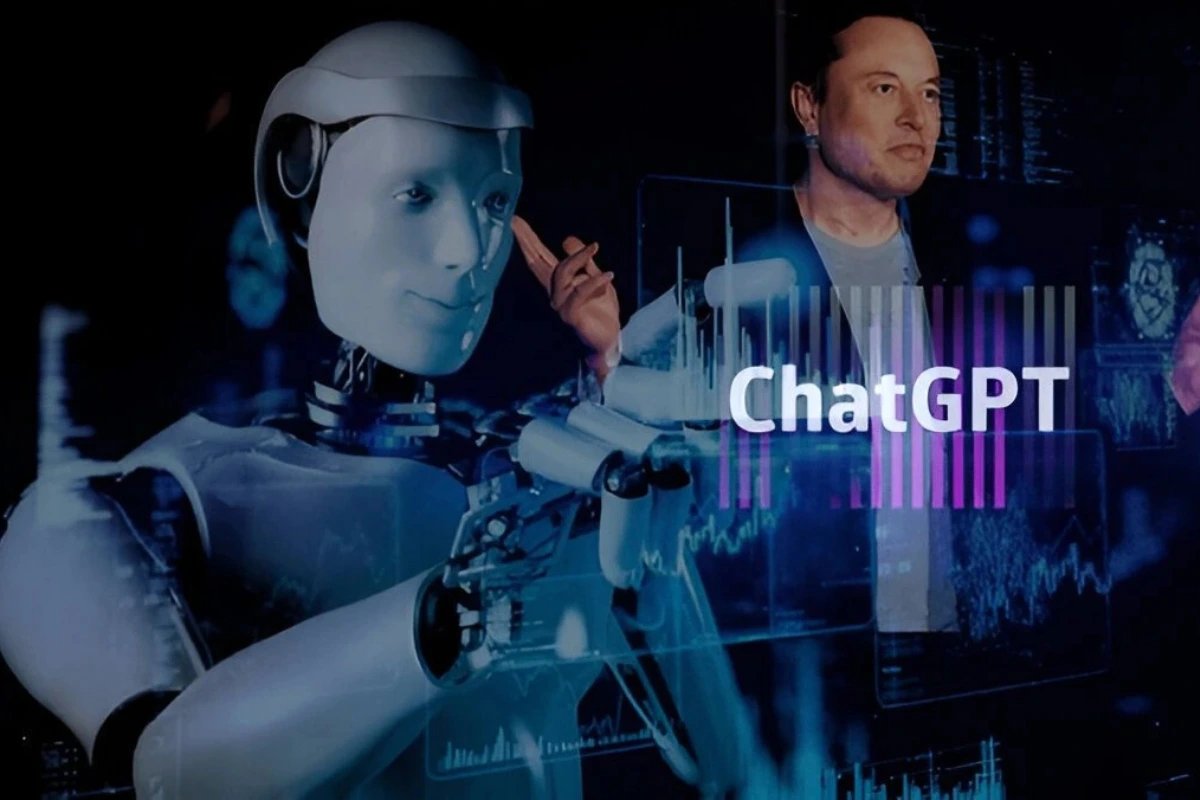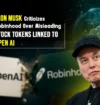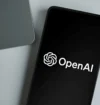Elon Musk-Led Group Makes $97 Billion Bid for Control of OpenAI
The artificial intelligence industry is witnessing a major shake-up as Elon Musk and his investors have placed a $97 billion bid to take control of OpenAI. This unexpected move could significantly impact the future of ChatGPT and other AI-driven technologies.
OpenAI, co-founded by Elon Musk and other tech visionaries, has been at the forefront of artificial intelligence innovation, particularly with the success of ChatGPT. However, Musk parted ways with the company in 2018 due to disagreements over its direction. Now, with this massive acquisition bid, he aims to regain influence over the organization he once helped build.
This development raises critical questions about the future of OpenAI, the leadership of Sam Altman, and the broader implications for artificial intelligence research. Let’s take a closer look at what this bid means for OpenAI and the AI industry as a whole.
Why Is Elon Musk Trying to Take Over OpenAI?
Musk’s History with OpenAI
Elon Musk was one of the founding members of OpenAI, established in 2015 with the mission to develop safe and beneficial artificial intelligence. However, he left the organization in 2018, citing strategic disagreements and potential conflicts of interest with Tesla’s AI development.
Concerns Over OpenAI’s Direction
Musk has openly criticized OpenAI, arguing that it has moved away from its original goal of making artificial intelligence open and accessible. He believes that under Sam Altman’s leadership, the company has become too commercialized, prioritizing profit over public benefit.
Competitive Edge in AI
By taking control of OpenAI, Musk aims to reshape its policies, improve transparency, and push for responsible AI development. He also wants to integrate ChatGPT and other AI tools with his companies, potentially boosting Tesla’s autonomous driving systems or integrating AI into SpaceX operations.
How Will This Affect OpenAI and ChatGPT?
Leadership Changes at OpenAI
If Musk’s bid succeeds, Sam Altman’s position as CEO could be at risk. Altman has been instrumental in ChatGPT’s success, leading the company to dominate the AI chatbot market. A leadership change could bring a new vision for OpenAI, potentially altering its roadmap and partnerships.
Impact on ChatGPT and AI Research
Musk’s control could lead to changes in how ChatGPT operates. He has been vocal about the need for AI safety regulations, which might result in stricter policies around AI usage. While this could enhance artificial intelligence ethics, it might also slow down innovation.
OpenAI’s Financial Future
A $97 billion takeover would bring substantial financial resources to OpenAI, allowing for greater investment in artificial intelligence research. However, this could also shift the company’s focus, depending on Musk’s vision for AI development.
Industry Reactions and Market Impact
Competitors’ Response
Major AI companies like Google DeepMind, Microsoft, and Meta are closely watching this bid. If successful, Musk’s influence on OpenAI could drive competition, pushing rivals to accelerate their own artificial intelligence advancements.
Government and Regulatory Concerns
Given the increasing scrutiny around artificial intelligence, regulators might step in to review the acquisition. Governments worldwide are concerned about monopolization in the AI industry, and Musk’s bid could trigger legal challenges.
Public and Investor Sentiment
The AI community is divided on Musk’s bid. Some see it as a positive step toward ethical AI, while others fear it could lead to corporate control over OpenAI’s research. Investors, however, see potential for higher returns, given Musk’s track record of scaling businesses.
What’s Next for OpenAI?
Negotiations and Approval Process
Before Elon Musk’s bid can go through, OpenAI’s board and key investors must approve the offer. This process could take months, especially if legal and regulatory challenges arise.
Potential Counteroffers
Other tech giants or investors might step in with their own offers, preventing Musk from gaining full control. Companies like Microsoft, which has a significant investment in OpenAI, may oppose the deal.
The Future of ChatGPT and AI Advancements
If Musk takes over, ChatGPT could undergo major updates or policy changes. His influence could either push artificial intelligence forward or introduce new limitations on AI development.
Frequently Asked Questions (FAQs)
1. Why is Elon Musk bidding for OpenAI?
Musk wants to regain influence over OpenAI, reshape its AI policies, and ensure that artificial intelligence development aligns with ethical and public-benefit goals.
2. How will this impact ChatGPT users?
If Musk takes control, ChatGPT could see changes in its safety policies, AI capabilities, and integrations with Musk’s businesses like Tesla and SpaceX.
3. What are the chances of OpenAI accepting Musk’s bid?
The $97 billion offer is significant, but OpenAI’s board and existing investors, including Microsoft, must approve the deal, making the outcome uncertain.



